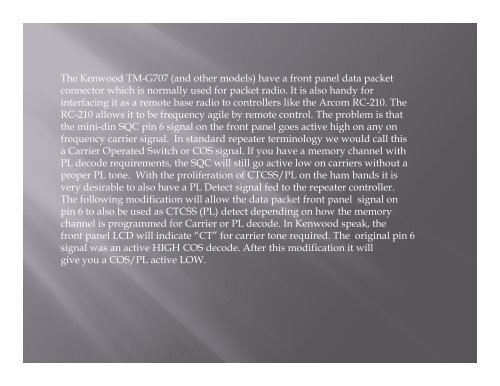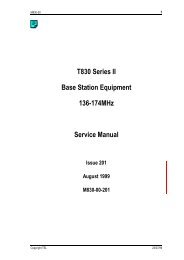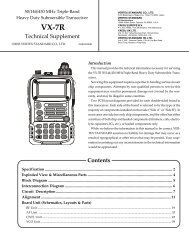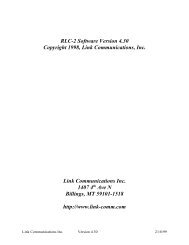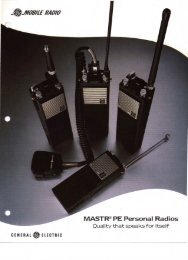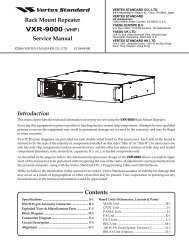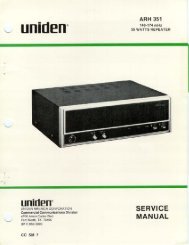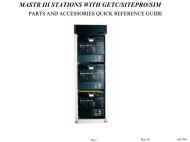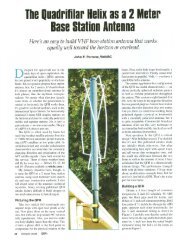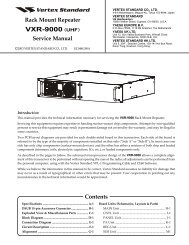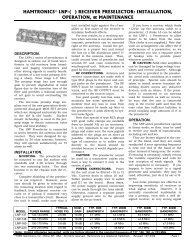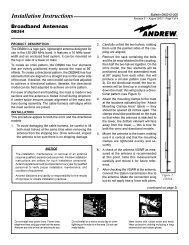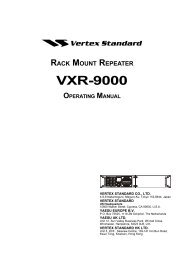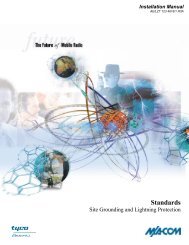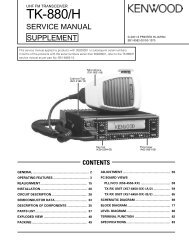Kenwood TM-G707A Add CTCSS decode to 6 pin mini-din Data ...
Kenwood TM-G707A Add CTCSS decode to 6 pin mini-din Data ...
Kenwood TM-G707A Add CTCSS decode to 6 pin mini-din Data ...
Create successful ePaper yourself
Turn your PDF publications into a flip-book with our unique Google optimized e-Paper software.
The <strong>Kenwood</strong> <strong>TM</strong>-G707 (and other models) have a front panel data packet<br />
connec<strong>to</strong>r which is normally used for packet radio. It is also handy for<br />
interfacing it as a remote base radio <strong>to</strong> controllers like the Arcom RC-210. The<br />
RC-210 allows it <strong>to</strong> be frequency agile by remote control. The problem is that<br />
the <strong>mini</strong>-<strong>din</strong> SQC <strong>pin</strong> 6 signal on the front panel goes active high on any on<br />
frequency carrier signal. In standard repeater terminology we would call this<br />
a Carrier Operated Switch or COS signal. If you have a memory channel with<br />
PL <strong>decode</strong> requirements, the SQC will still go active low on carriers without a<br />
proper PL <strong>to</strong>ne. With the proliferation of <strong>CTCSS</strong>/PL on the ham bands it is<br />
very desirable <strong>to</strong> also have a PL Detect signal fed <strong>to</strong> the repeater controller.<br />
The following modification will allow the data packet front panel signal on<br />
<strong>pin</strong> 6 <strong>to</strong> also be used as <strong>CTCSS</strong> (PL) detect depen<strong>din</strong>g on how the memory<br />
channel is programmed for Carrier or PL <strong>decode</strong>. In <strong>Kenwood</strong> speak, the<br />
front panel LCD will indicate “CT” for carrier <strong>to</strong>ne required. The original <strong>pin</strong> 6<br />
signal was an active HIGH COS <strong>decode</strong>. After this modification it will<br />
give you a COS/PL active LOW.


